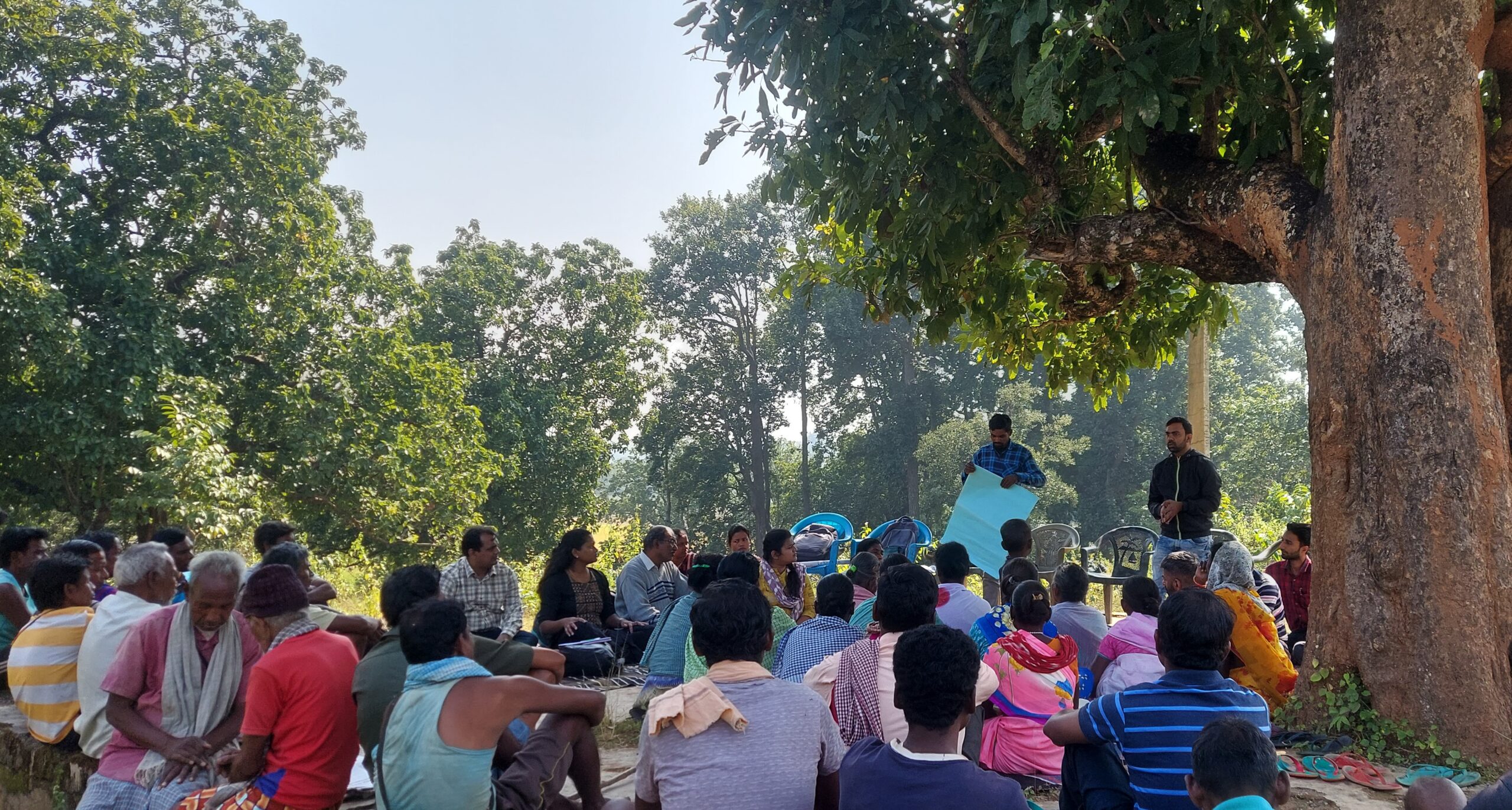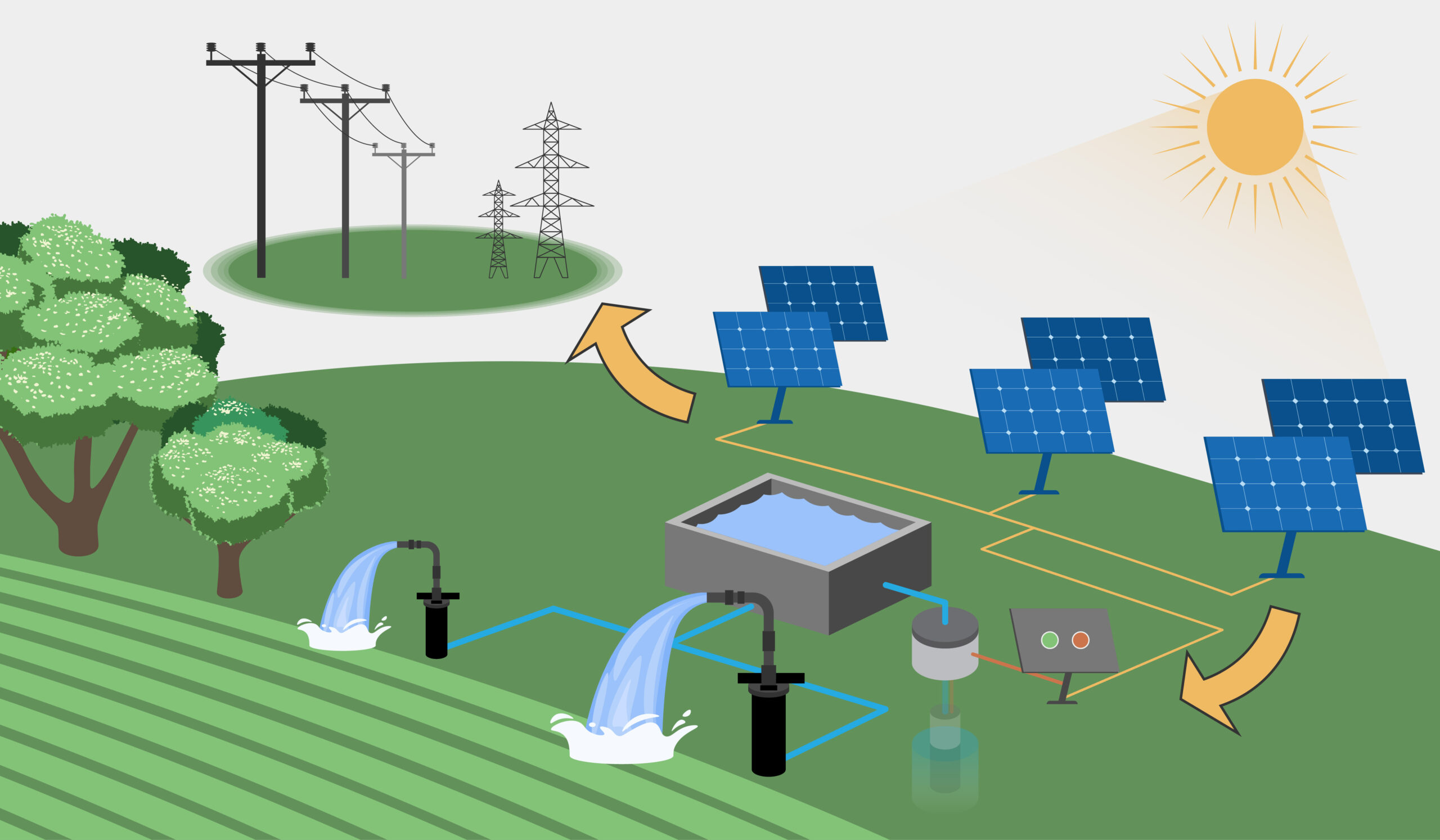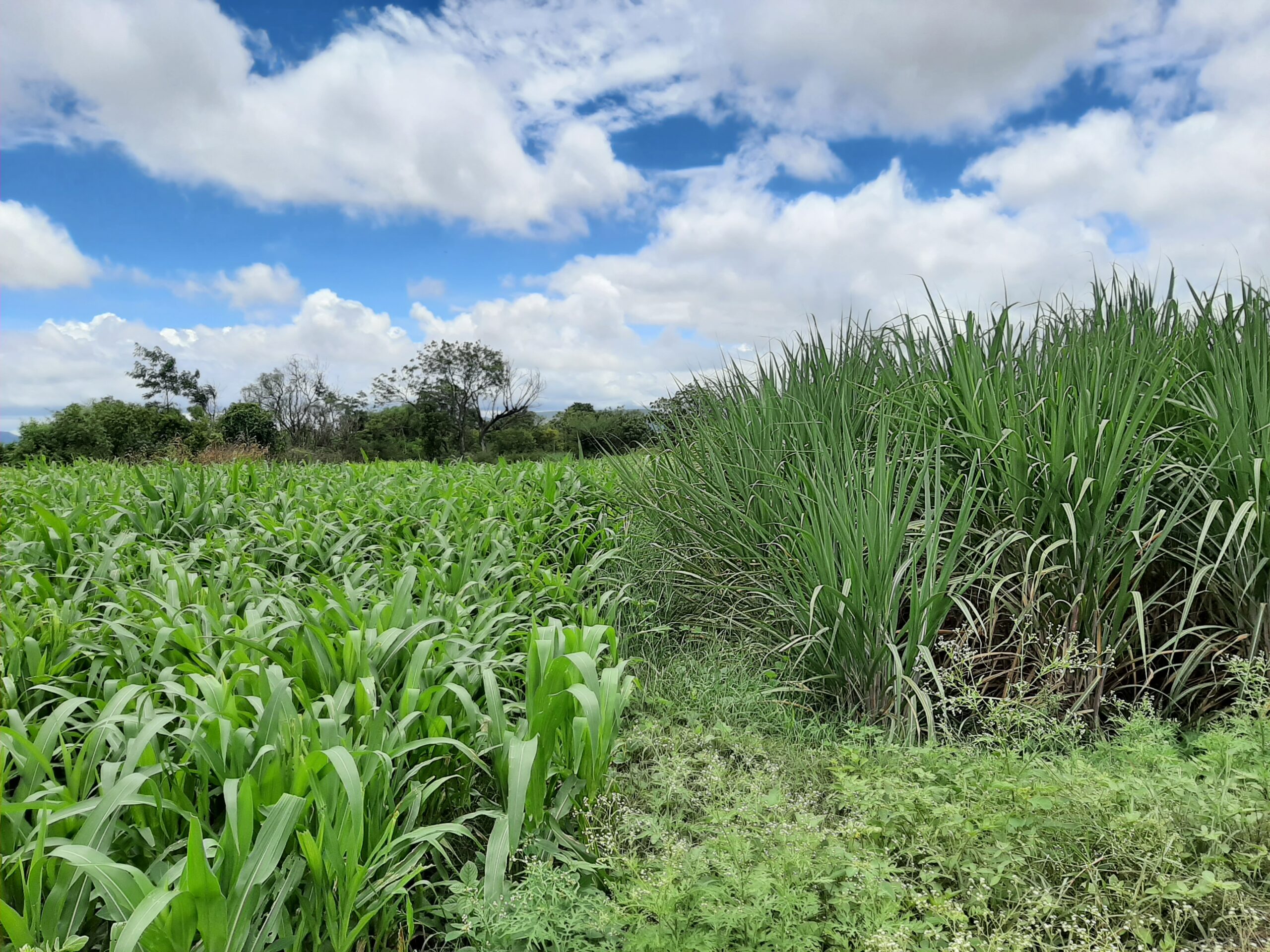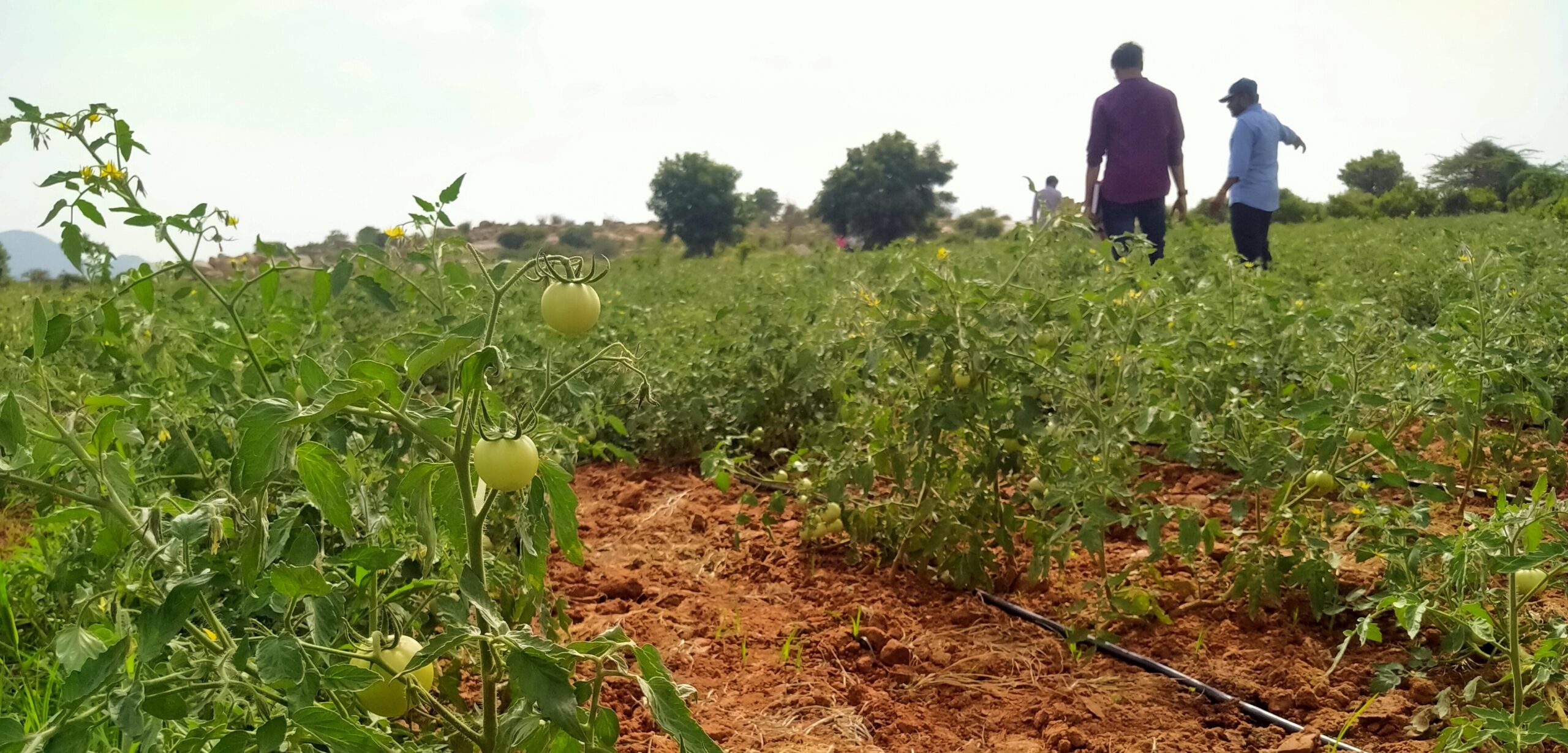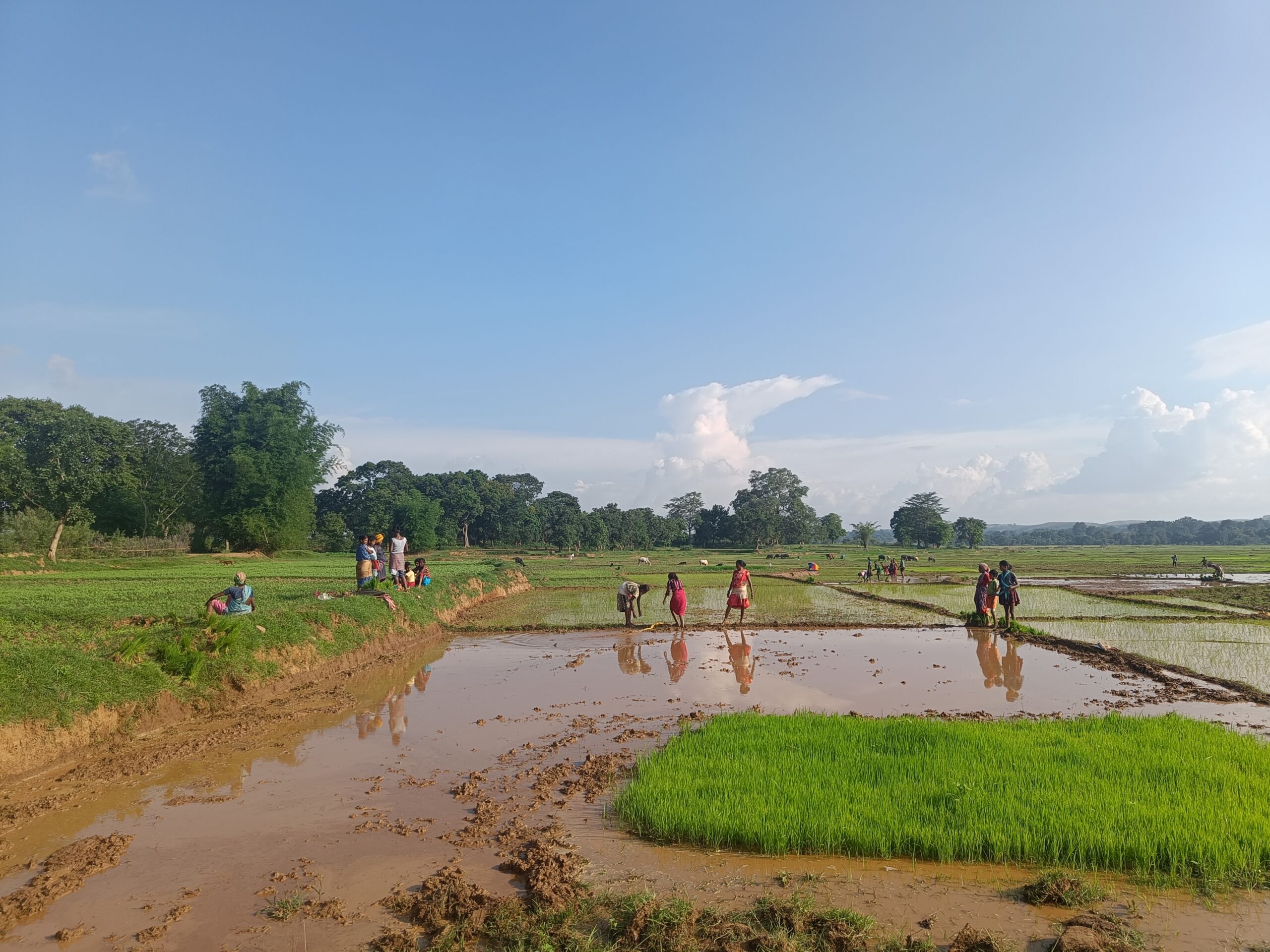From Pilots to Scale: We Are Documenting Knowledge to Spread Effective Rural Solutions
A community resource person or Sakhi conducting an Aajeevika Paathshala (a school for farmers to train them on climate resilient agricultural practices and sustainable livelihoods) using resource materials like banners and posters to disseminate knowledge. This session is being held at Ghat Bas village in Lachhmangarh block, Alwar, Rajasthan where Ibtada has been working for over a decade. Credit: Gargi Anand.
Imagine this. A small Civil Society Organisation is based in north Karnataka, a place where land degradation and water scarcity is widespread. They’re struggling to devise and implement protective irrigation systems that would allow farmers enough water to prevent crop loss. But this is not easy; there are many facets to the problem and many actors who need to be engaged with.
A few hundred miles away, across state borders, is another organisation dealing with very similar social and environmental conditions. They, on the other hand, have successfully implemented a protective irrigation scheme through a set of socio-political and environmental interventions, and transformed the lives of farmers by improving incomes, while also ensuring water sustainability in the region.
How do we scale up these local innovations? How do we ensure that success stories don’t remain rare, exceptional cases; rather, beacons that spark similar initiatives in other places confronting the same problems?
Let’s look at another example. A CSO in Andhra Pradesh may have decades of experience implementing a very specific solution — they excel at planning and constructing farm ponds, trenches and other watershed management work. Though useful, the communities they work with are in need of another kind of support; they want to diversify their livelihoods and start setting up backyard poultry. But they don’t know where to start; neither does the local CSO who focuses on what they know and not what is needed.
How do we help such communities get the help they need in terms of training and vendors?
Of course, these are very simplistic anecdotes, but they capture a fundamental problem that holds back rural development. Despite hefty investments, change is still not happening fast enough on the ground, one of the reasons being that dissemination of knowledge – of what works, how, where and in what conditions – is slow. Scattered across the country are spots of brilliance – people, grassroots organisations and communities, against all odds, come up with ways to work and manage their lives better.
Read | Field Notes from Lohardaga: How a Grassroots Organisation in Jharkhand Shares Knowledge
This has been the premise of the Green Rural Economy, a consortium-led initiative that aims to make knowledge and services more discoverable and accessible. This is an ambitious undertaking with many moving parts. We have successfully hosted a series of ‘clinics’ that have resulted in partnerships between different organisations. We have carried out fieldwork in Jharkhand, Karnataka and Rajasthan to understand the needs of grassroots communities and how they share information.
Our partnership with the Axis Bank Foundation to create ‘playbooks’ takes this work further.
Since the GRE platform was first conceptualised, playbooks were imagined as a core part of these efforts to improve access to knowledge and quality content, enabling discovery of expertise and shortening the time required for project planning. These are essentially how-to manuals that capture how an intervention can be carried out step by step. For example, how can you monitor or test soil quality, how do you set up a poultry farm or how do you carry out composting?
Read | Can Playbooks Promote Green Rural Livelihoods? Insights from Conversations With CSOs
Sourced from leading experts and organisations, these playbooks or guides must provide a unified view of solutions, and have to be actionable. Through funding from the Axis Bank Foundation (ABF), our immediate objective is to discover, investigate and document a set of playbooks for ABF’s grantee network. We will also test the usability of these playbooks and disseminate them strategically based on relevant themes.
To break it down further, if an organisation has come up with a solution that works, our mission is to:
- Capture and contextualise knowledge for new places.
- Spread the word and ensure others can benefit.
- Connect communities with trainers and vendors who can help them implement a solution.
These playbooks need not necessarily be written guides. It’s a catch-all term to refer to multiple formats as varied as video and audio libraries, illustrated booklets, detailed reports or snippets of information passed on through instant messaging services like WhatsApp. The point is to overcome barriers of language and medium to accelerate learning and uptake of information.
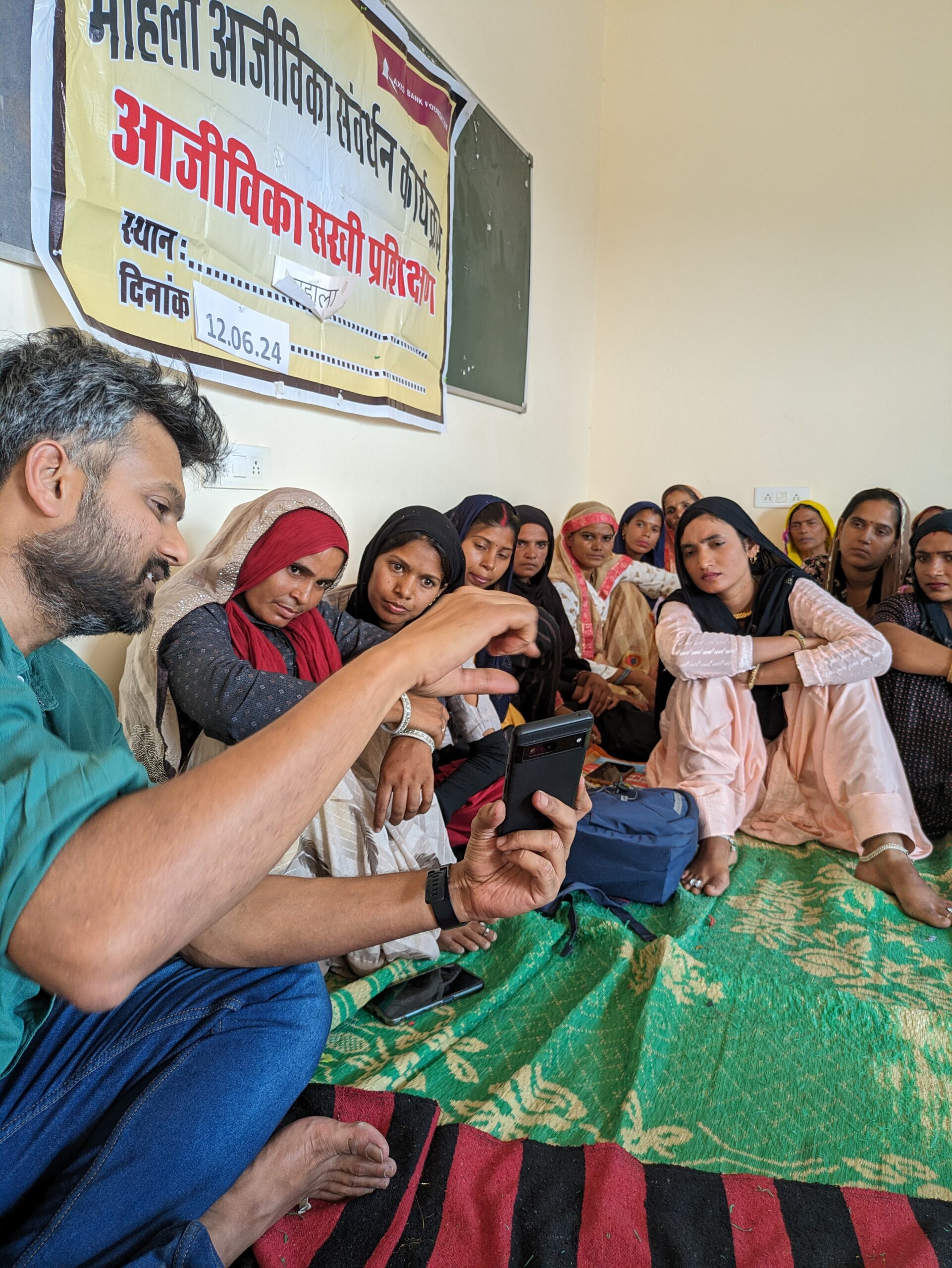
We gathered feedback from the Sakhis (community resource persons) on playbook samples previously created to understand their preferences and expectations when it comes to digital knowledge products. This picture was taken at the Village Level Federation office, Bahala, Ramgarh block, Alwar. Credit: Gargi Anand
Over the next year, we are working closely with ABF’s orbit of CSOs who, across states, are doing stellar work to promote sustainable rural livelihoods. In early conversations with a few, we have understood that documentation remains a gap, not just for these organisations to take their work beyond a few villages but also for their internal needs – to train new staff and Community Resource Persons on what needs to be done.
Our first point of contact are these expert organisations who know the place and people and the challenges they face in detail, over years of experience. With them as our guide, we want to ensure that playbooks cater to the needs of potential users. Based on the information provided, the user should be able to easily act upon the instructions in the playbook.
To do this, we need to make sure to provide:
- Knowledge tailored to their context
- Resources in multiple languages, conveyed through different mediums
- Links to vendors and trainers
- Credit attributed to those who conceptualised and implemented a solution
This is an ambitious project and we aim to carry it out through four phases.
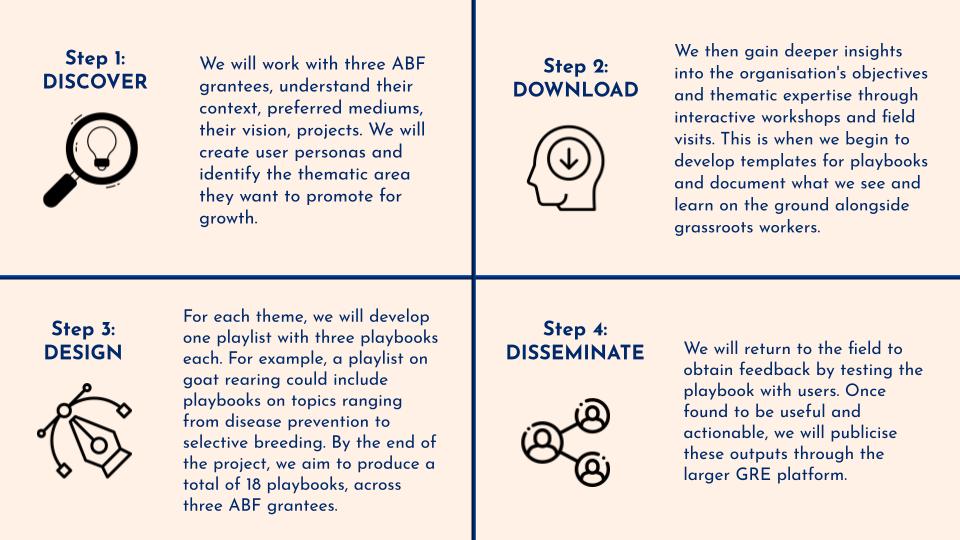
Even during our preliminary workshops and field visits, we repeatedly found validation for this approach. The partner organisations also told us that visually appealing knowledge resources are always more effective to promote learning. We have a multidisciplinary team of qualitative researchers, journalists, videographers and graphic designers in place to ensure that these playbooks, whatever form they are in, don’t gather dust on a shelf but turn into a one-stop resource on how to carry out a process, thereby unlocking opportunities.
The waves of extreme heat this summer in India exposed already vulnerable rural communities to heightened risk to their lives and livelihoods. Recent reports have also documented the extent of crop loss this year, highlighting the urgent need to tackle degradation of ecology and diversify livelihoods – at scale. This is a step towards achieving scale, with access to knowledge as a starting point.
Read | The Launch of a Consortium-Led Platform to Build Green Rural Economies
With inputs from Kaavya Kumar
Published by Anika Choudhary
If you would like to collaborate, write to us. We would love to hear from you.
Follow us and stay updated about our work:


